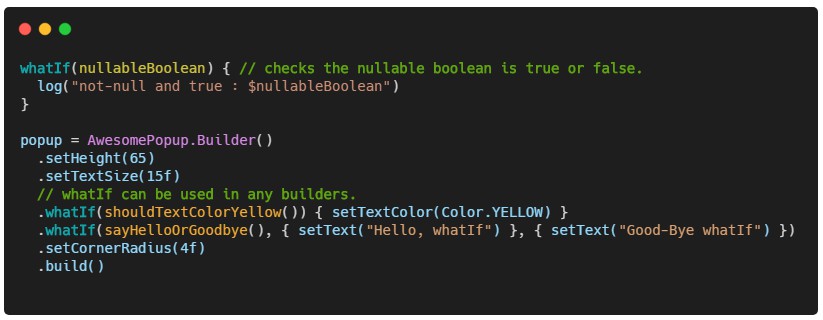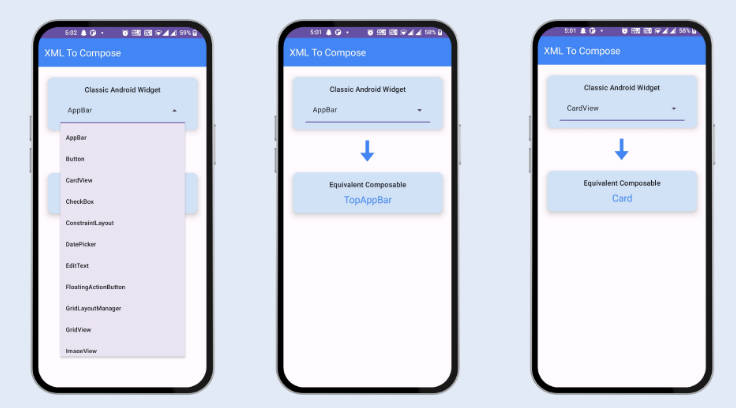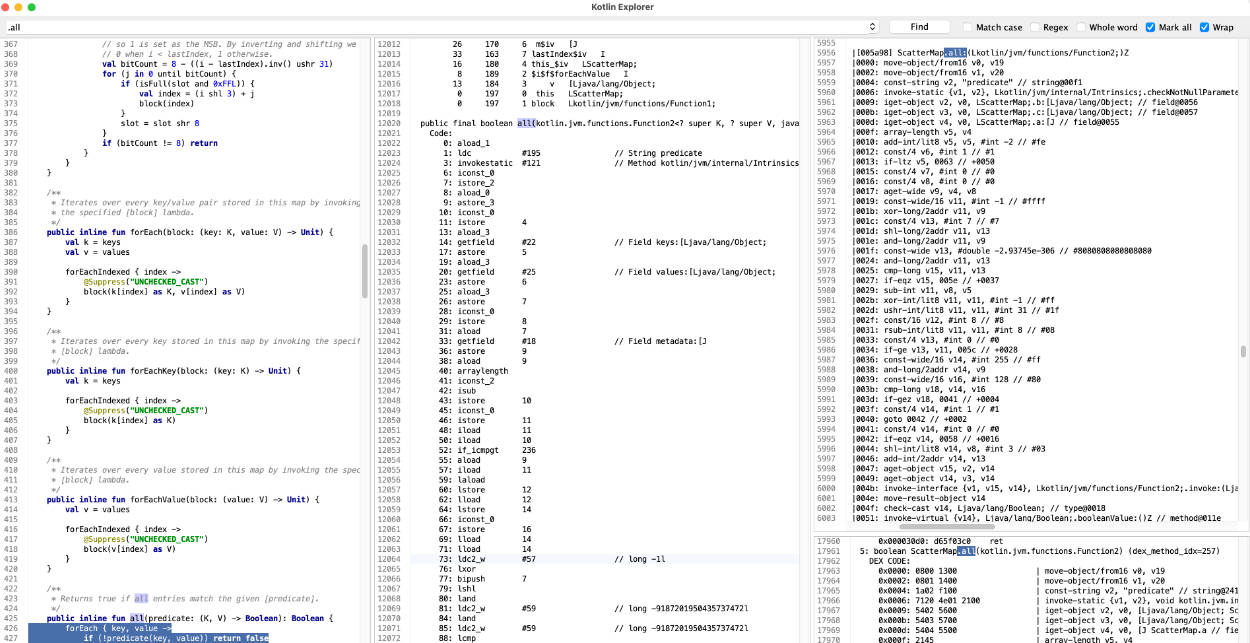WhatIf
☔ WhatIf is kotlin extensions for expressing a single if-else statement, nullable and boolean.
Download
Gradle
Add a dependency code to your module's build.gradle file.
Usage
WhatIf
WhatIf is an expression for invoking whatIf lambda when the given boolean is true and not-null.
Here is an extension for nullable booleans.
WhatIfNot
The whatIf expression is basically composed with given, whatIf, whatIfNot.
If the target is null or false, whatIfNot will be invoked instead of the whatIf.
If we do not need to handle whatIfNot case, it can be omitted.
Or here is an extension for nullable boolean.
WhatIf in the builder pattern
Sometimes we should set builder differently to depend on options.
WhatIf is useful when using a chaining function like a builder pattern.
It can be applied to any builder patterns like AlertDialog.Builder or anything.
WhatIfNotNull
WhatIfNotNull is an expression for invoking [whatIf] lambda when the target object is not null.
And we can handle the null case.
If the target is null, [whatIfNot] will be invoked instead of the [whatIf].
WhatIfLet
The basic concept is the same as whatIf but it is useful when the receiver and the result should be different.
We can use default value instead of the whatIfNot and can be omitted the whatIfNot.





